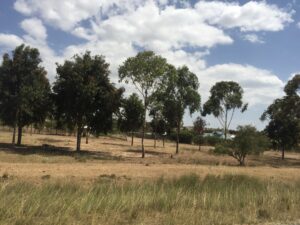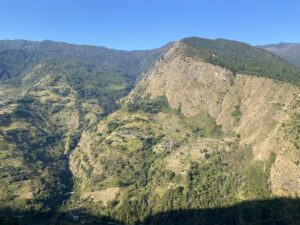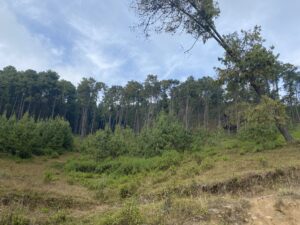No Results Found
The page you requested could not be found. Try refining your search, or use the navigation above to locate the post.
Restore
Resource Tenure and Governance for Ecosystem Restoration
Convenors: Dr Ganga Dahal, Dr Hemant Ojha, and Dr Basundhara Bhattarai
Intergovernmental Science-Policy Platform on Biodiversity and Ecosystem Services (IPBES) has warned that 75% of the earth’s land ecosystems are degraded, impacting over 3.2 million people. This trend continues and a primary reason for this crisis is that resource tenure and governance arrangements are not clear and conducive to sustainable and equitable use of resources around the world.
On a positive side, there is now a widespread realisation that humankind has destroyed ecosystems across the planet and also a global consensus that we need to put concerted efforts to restore them. Hence the United Nations decade (2021-2030) on Ecosystem Restoration.
On a negative side however, ecosystem restoration efforts to date have not delivered results at scale. Policies are slow to support action and investment at scale. When efforts are focused on restoration, numerous governance issues tend to be ignored: land grabbing, green washing, alienation of the customary rights of indigenous peoples and local communities over land and forest resources, gender injustice, non-transparent governance, and even corruption. At the core of these issues is a question – how can we restore ecosystems in an inclusive way, with co-benefits on poverty reduction, human rights and democratic governance?

Recent research shows that majority of natural resources belong to the state, but local communities (LCs) and indigenous people (IPs) are continually engaged in protection and management of natural resources, even without having legal and statutory rights. In the context of global commitment of national governments towards achieving sustainable development goals by 2030, the role of formal and informal rules, organizations, and processes has become more important in recent years. The process of recognition of customary rights of IPs and LCs over land and forest is gradually unfolding across many countries in Asia, Africa and Latin America. Yet the pace of success is far too inadequate and there is a need to expedite collective action to achieve ecosystem restoration and sustainable development goals while ensuring equity and social justice.
Models and practices of natural resource governance are diverse across countries and regions but outcomes on people, ecosystems, and climate are far too inadequate to tackle the scale of socio-environmental challenges we are facing. There is a huge potential to draw lessons from these diverse modes of resource governance practices, and there is a particular need for analysis from the prospective of rights over resources and its linkages with sustainability and climate change. Rapidly changing social, economic, and environmental contexts at national, regional, and global levels also shape the outcome of natural resource governance in diverse situations. We can see the opportunity to pull together practice-based insights from multiple contexts and action settings to inform inclusive and equitable governance of land, forest, and ecosystem restorations.

Restoration is not simply a technical job to be done by professional experts. All acts of ecosystems restoration, anywhere on the planet, involve motivations, values, benefits and impacts held by many different stakeholders. Likewise, every aspect of ecosystems degradation – and potential solutions for restoration – is interpreted and defined through pluralities of knowledge that people have developed over time. It involves making sense of the problem and defining solutions through a collaborative process of learning and decision making in and around the landscape itself. And such efforts and investments are not likely to be successful if resource tenure is insecure and governance systems are weak.
However, diversity in societies, in terms of class, gender, and ethnicity is embroiled with ecological dynamics, and despite good intentions, many different stakeholders are excluded or disempowered in the very process of restoration projects. Too often, important questions, such as how local actors are empowered to engage in problem analysis, planning, decision making, implementation and delivery of restoration work, are ignored. The reality is that success in restoring ecosystems and landscapes depends, to a large extent, on how projects engage communities, stakeholders, businesses, and regulators in creating policy space for positive impact on the ground. Secure resource tenure and enabling governance are particularly crucial as they are the underlying field enabling action.
While numerous technical models have been developed, resource tenure and governance questions continue to be sidelined, or only peripherally addressed. Rapidly changing social, economic and environmental context at national, regional and global level also demand that our efforts are fully informed by such contextual changes happening in different countries and localities. Hence there is a need to strengthen processes to enhance sharing of knowledge and insights and to build a global community of practice to champion governance and tenure reforms for inclusive ecosystem restoration.
With a goal to contribute to this need, this Global Learning Hub on Resource Tenure and Governance for Ecosystem Restoration (RESTORE) has been created by the Institute for Study and Development Worldwide (IFSD), Australia. RESTORE offers a platform for global community of practice to share knowledge and inspire new and transformative actions across the Global South. Specific case stories and presentations from people confronting challenges of resource governance will be featured in this Hub. It can also catalyse further collaboration around scientific, developmental and policy oriented work.
While the need for inclusive and transformative actions for ecosystem restoration is essential worldwide, we feel that the countries listed below will benefit most significantly from the RESTORE Learning Hub.
Indonesia is one of the rich countries in Asia in terms of its wealth of natural resources mainly tropical forests (more than 135 million hectare). The large area of tropical rain forest has been protected and managed by indigenous peoples since time immemorial through a customary practice called- Adat. A 2013 Constitutional Court decision has recognised the customary adat land and enabled indigenous peoples to title more than 40 million hectare of such land. Similarly, Indonesian government has committed to recognizing 12 million hectare of community forestland and allocate 9 million hectare for agrarian reform.
Recently promulgated new Constitution of Nepal 2015 paved the way for federal governance structure having three tiers of governments- central, province and local. Local Government Operation Act 2017 provides rights to local government to enact local laws on natural resource governance including on forests, land and water. It shows local governments have significant decentralised power to regulate and enable ecosystem restoration, across forest, water, agriculture and biodiversity. Nepal also has a longer history of local communities and indigenous people managing natural resources in a sustainable way, with community forestry system standing out as a globally acclaimed success story. In the changing political and social contexts, resource tenure and governance systems are getting fractured and weak, but there is a huge opportunity to learn from past and emerging practices to inform wider debate on restoration governance.
India has extremely diverse situations and contexts of ecosystem restoration, both in the informal domains of community actions and in terms of state policies programs. The legal framework provided by the Forest Rights Act 2006 is an immense opportunity for scaling up of secure tenure rights of tribal communities, indigenous people and forest dwellers over land and forest resources. The progress achieved so far is too little (less than 5 percent) of the potential for collective rights over 40 million hectares of forest land has been achieved. This is in part because the FRA faces strong opposition from other actors who value forest as national resource or a reserve of biodiversity. India also shows how resource governance can enter the court system as matter of justice, with diverse interpretations of resource tenure and governance arrangements.
China offers unique case of community and state partnership in landscapes management. All China’s forestlands are publicly owned either by the central government or by collectives. There is no private ownership, but many forests under collectives are formally allocated to individual households for management and use. Within state forestlands, variations of informal land contracting arrangement to households, communities and even private investors may also exist. The government has enacted a series of legislations that increasingly enables village communities to decide whether use, management and other rights to forestland of various types within collective are to be handed over to individual households with long terms rights or to be retained within village collective mandate. In general the government in China appears to be committed to eventually devolving forestland rights down to communities, at least in the collective forestry sector.
Vietnam has a history in allocating forest rights to local communities. Forest Land Allocation (FLA) program has successfully allocated more than 25 percent of Viet Nam’s forestland to households or communities in under two decades. However, concerns are growing around the success of this effort. The program has led to mixed results and issues of equity and access are particularly critical. There are also cases of clear success and which can offer good lessons going forward. Studies show that FLA has made positive contributions where benefit sharing are clear and pro-poor.
Almost 60 percent of Timor Leste land area is under forest. Deforestation and forest degradation, particularly in mountainous areas, have resulted in erosion and landslides, causing land degradation and disrupting hydrological functions. This has also affected agricultural productivity and ultimately food security. Climate change is making things worse, through rising temperatures, longer period of hot weather, long droughts, more powerful storms and extreme rainfall. Tackling these challenges requires managing watersheds and forests (including mangroves), and top down approaches are not likely to succeed. Community forestry and participatory landscape management can be promising options but these need to supported by reforms on resource tenure and ecosystems governance.
Cambodia is at a crossroads in environment and development. It has a strong history of local communities managing forest landscapes sustainably. Since1999, Cambodia has pursued a policy of granting forest areas to private companies as economic land concessions, with the purpose of converting non-productive or degraded forestland into agro-industrial plantation and creating employment opportunity for local people. Such degraded lands are often the lands claimed by indigenous people and local communities. Cambodia offers a case of how community system of resource governance can sit alongside national economic objectives of commercial use through concession.
In the Philippines, indigenous people’s rights over natural resources have a strong legal support. For example, Indigenous Peoples Rights Act of 1997 enables indigenous people to secure certificate for ancestral domains. Similarly, community based forest management is strongly supported by the Executive Order 263 of 1995, a presidential decree. However, climate change and socio-economic drivers are posing new challenges which have strong implications on resource tenure and governance.
Lao PDR is another country with significant forest landscape and strong history of local community managing the forest and land resources. Sixty eight percent of land in Lao PDR is covered with forest. According to the Lao PDR forestry sector strategy, 8.2 million ha of forestland has been allocated to local people for collective or individual use under land and forest allocation program. There are concerns that the program is not fully implemented on the ground, with the State retaining decision making authority. Meanwhile, there is an emerging trend of land grabbing and forest concessions, which may lead to unfair and inequitable resource governance.
Cameroon is seen as the pioneer of community forestry concept in Africa. Cameroon’s 1994 Forestry Law has clear provisions to guarantee rural communities access to forest resources. Supported by this legal arrangement, Cameroon has already put 2 million hectares of forest land (which comes about 10% of the total forestland in the country) under community management. Food and Agriculture Organisation report says that the outcomes of community forestry are mixed, because of bureaucratic hurdles in implementation and the difficulty of collective action among forest villages.
We are rolling out monthly webinar or roundtable focusing on country level issues and opportunities around how ecosystems and landscapes can be restored in an inclusive way, by reforming resource tenure and governance arrangements.
In the RESTORE webinar series starting March 2023, we are aiming to cover the above mentioned countries. We will announce the monthly webinar schedule soon in this page of the IFSD website and circulate via email to those interested to join.

In this Global Knowledge Hub, we invite activists, researchers, policy advocates, community movement leaders, development partners, political leaders, and all kinds of alliances and coalitions who are concerned with the twin challenges of ecosystem restoration and human wellbeing. Please complete this form if you are interested to be part of this Hub or want to contribute to this hub.
Dr Ganga Ram Dahal is a Senior Fellow, Resource Tenure and Governance at IFSD. He has over 25 years of experience across Asia, Africa and South Africa on topics of forest and land tenure reform, resource governance, community participation and policy. He has worked several international organisations including FAO, CIFOR, RECOFTC, and Rights and Resources Initiatives.
Dr Hemant R Ojha is Principal Advisor at IFSD and also an Adjunct Associate Professor At Australian National University. He is an environmental governance specialist advising decision makers, mentoring researchers, and mobilising social networks to build climate resilience and help realise sustainable development goals. His work cuts across water, food, agriculture, and forest biodiversity sectors with regional focus on Asia, Australia, and the Pacific.
Dr Basundhara Bhattarai is a senior advisor at IFSD. She has worked as a specialist on gender equality, disability and social inclusion in Asia and the Pacific for about 25 years. She has developed and applied principles and procedures of social justice across a range of disciplines including food and water security, forest/biodiversity, climate adaptation, disaster risks reduction, and ecosystem-based adaptation. Her expertise covers research, project management and coordination, policy analysis, community development, coaching and mentoring, business development and program design, organisational change management. She has strong expertise on ‘Gender Transformative Approach’(GTA) in her analysis and interventions.
The page you requested could not be found. Try refining your search, or use the navigation above to locate the post.